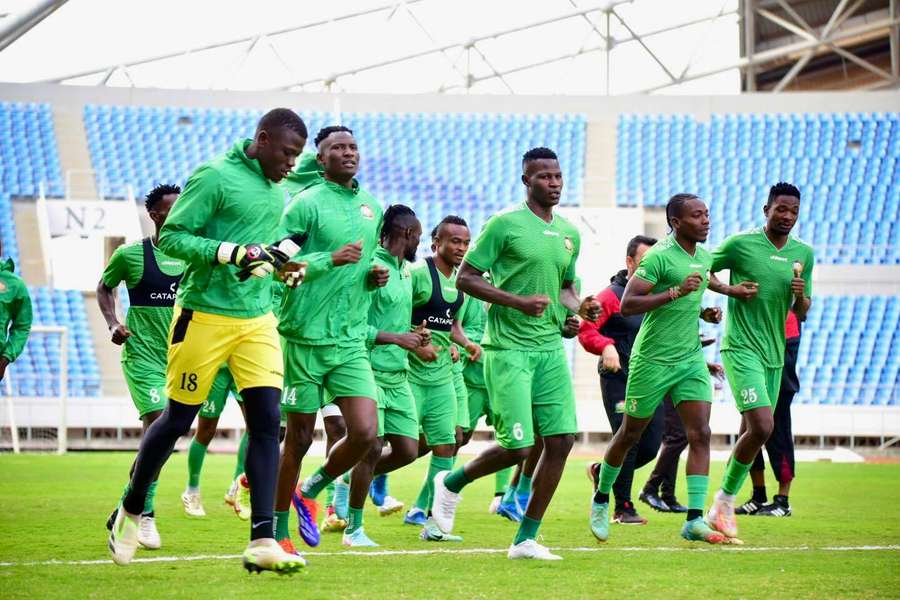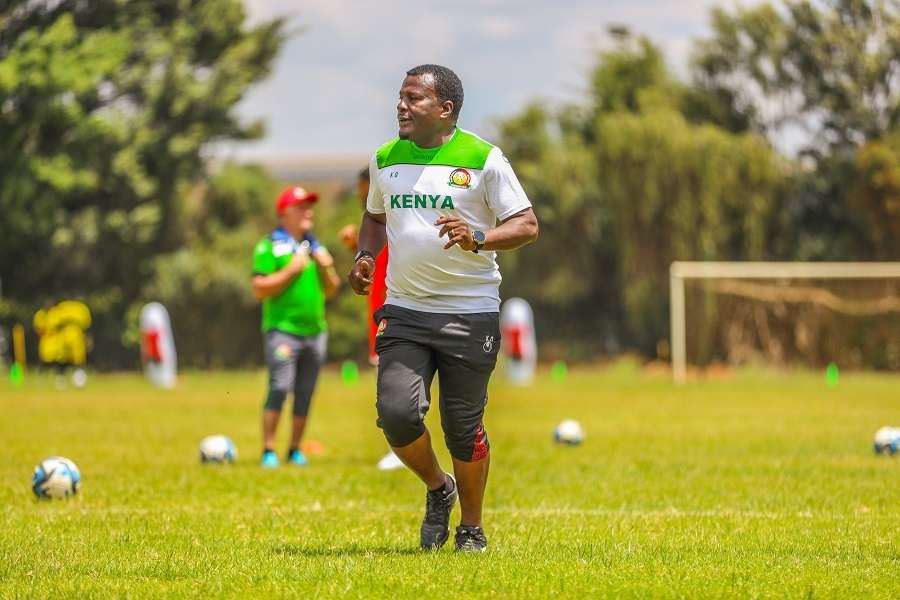When is Harambee Stars’ first COSAFA game in South Africa and how can you watch?

Harambee Stars returned with two points from their Group F qualifying matches in Lilongwe, Malawi, after drawing 1-1 against Burundi and 0-0 against African champions Ivory Coast.
However, before the dust settles, Harambee Stars will be airborne again, this time to South Africa, where they will take part in the prestigious regional tournament, as a guest team, following the withdrawal of Malawi.
Malawi’s Flames withdrew at the eleventh hour in honour of their Vice-President Saulos Chilima, who tragically passed away on June 11th, 2024. The wreckage of the military plane carrying Chilima and nine others was located in a mountainous area in the north of the country after a search that lasted more than a day.
The invitation allows Harambee Stars to add another trophy to their cabinet, having won the Four-Nation tournament in Malawi in March. Kenya won their group opener 4-0 before beating Zimbabwe 3-1 in the final, to win their first trophy since 2017, when they beat Zanzibar 3-2 on penalties following a 2-2 draw after extra time at Machakos Stadium to win the Council of East and Central Africa (CECAFA) Senior Challenge Cup.
Which group is Kenya & when is their first game?
The draw for the ninth consecutive COSAFA Cup tournament was conducted on June 14th, with Malawi being pooled in Group B. However, their exit saw Kenya landing an invite to replace them and the East African nation obliged. They will play alongside record seven-time winners Zambia, Zimbabwe, and Comoros.
Group A will have South Africa, Mozambique, Eswatini, and Botswana while Group C comprises Angola, 2015 champions Namibia, last year’s runners-up Lesotho and Seychelles. Harambee Stars will begin their quest for the trophy with a fixture against the Chipolopolo on June 27th at 19:00 at Nelson Mandela Bay Stadium.
Kenya’s second game will be against Comoros on June 30th at 13:00 at Isaac Wolfson Stadium, a venue located in KwaZakele, Ibhayi just outside Port Elizabeth. Harambee Stars will then wind up their preliminary matches with a fixture against the Warriors of Zimbabwe on July 2nd, 13:00, at the same Isaac Wolfson Stadium.
This will be the second time in history that Kenya, who are the fifth highest ranked side in the tournament, will be taking part in COSAFA, the first time was in 2013 when they failed to get past the group stage.
During the 14th edition of the tournament in Zambia, Kenya, who were invited alongside neighbours Tanzania but the latter withdrew citing conflicting schedules with African Nations Championship (CHAN) qualifiers and the CECAFA Kagame Cup, were pooled in Group B alongside Lesotho, Botswana, and Swaziland.
Kenya started their campaign with a 2-2 draw against Lesotho, Paul Kiongera and Jockins Atudo the scorers, beat Swaziland 2-0 courtesy of a double from Edwin Lavasta but lost their final group game 2-1 against Botswana with Edwin Olerile notching the consolation.
The outcome saw Kenya finish third in the group with four points, with leaders Lesotho, who had six, and Botswana with five, qualifying for the quarter-finals.
The tournament proper will kick off with a Group A fixture between Eswatini and Botswana, a repeat of last year’s opener, where a goal from Lebogang Ditsele helped the Zebras to a 1-0 win. Hosts South Africa will meet Mozambique in the second Group A clash at the same venue, while Zimbabwe, who will be making a comeback since 2021, will play their Group B opener against Comoros on June 27th.
How can I watch Harambee Stars and the format?
According to COSAFA’s official website, all matches at this year’s tournament will be broadcast live on FIFA+ and there will be coverage across all their mediums and social media platforms.The platforms that will provide live coverage include FIFA+, COSAFA website, and COSAFA YouTube channel.
The group winners and the best second-placed side across the three pools will advance to the semi-finals. The winner of Group B will take on the winner of Group C, with the top team in Group A to meet the best runner-up.
Should two or more teams finish on the same number of points in the pool phase, they will be separated by the result of their head-to-head meetings in the first instance. If this does not provide a conclusion, the next criteria will be the goal difference resulting from the group matches between the teams concerned and the greater number of goals scored in all the group matches between the teams concerned.

Meanwhile, there will be no extra time played in the semi-finals or the third-place play-off, tied matches will go straight to penalties. However, the final will have two 15-minute periods of extra time if the match is all-square after 90 minutes. Should there still be no winner, then penalties will decide the winner.
Founded in 1997, the COSAFA Cup has seen Angola, Botswana, Comoros, Eswatini (Swaziland), Lesotho, Madagascar, Malawi, Mauritius, Mozambique, Namibia, Seychelles, South Africa, Zambia, and Zimbabwe take part in the tournament in the past. Seven non-COSAFA members have played: the Democratic Republic of the Congo, Equatorial Guinea, Ghana, Kenya, Tanzania, Uganda, and Senegal.
Zambia were crowned inaugural champions of the tournament, which featured nine sides, including East African guests Tanzania after they claimed the 1997 event with the top spot in the tournament mini-league.
In history, the Chipolopolo has won the most titles with seven wins, followed by Zimbabwe with six wins. Zambia has been the most prolific side in the competition failing to reach the top four only four times since the tournament's inception.
Who is in the Harambee Stars squad?
Kenya squad will feature a blend of youth and experience with assistant coach Ken Odhiambo, who will take charge in the absence of Firat assisted by William Muluya, naming a provisional squad of 30 players, to be whittled down before the team departs for South Africa.
In the squad, Anthony Akumu and Johnstone Omurwa, who played against the Swallows and the Elephants in the World Cup qualifiers, have been shortlisted alongside U18 prodigies Amos Wanjala and Aldrine Kibet, who made a mark at last year’s CECAFA U18 Championships held in Kisumu.
The tournament will provide a great opportunity for Gor Mahia striker Benson Omalla to prove his worth having been playing in the shadows of lead striker Michael Olunga, who is not part of the squad. Despite being the top scorer in the FKF Premier League with 16 goals, Omalla, only managed to come off the bench in the game against Burundi but was not involved against Ivory Coast.
The squad has three new call-ups plying their trades in England led by Zech Obiero of Leyton Orient, George Gitau of Middlesborough, and Jeremy Bissau of Brooke House College while Josphat Lopaga of Dynamo Brest in Belarus has also been listed.
Kenya squad
Goalkeepers: Bryne Omondi (Bandari), Brian Bwire (Tusker), Sebastian Wekesa (Kariobangi Sharks), and Ibrahim Wanzala (Kakamega Homeboyz).
Defenders: Alphonce Omija (Dhofar, Oman), Paul Ochuoga (Gor Mahia), Boniface Onyango (Tusker), Geoffrey Onyango (Kariobangi Sharks), Hanniff Wesonga (KCB), Amos Wanjala (Nastic Sports Academy, Spain), Johnstone Omurwa (Portugal), Faiz Opande (USA), and Baron Ochieng (Sofapaka).
Midfielders: Wilson Stanley (Kariobangi Sharks), Shariff Musa (Gor Mahia), John Ochieng (Zanaco, Zambia), Anthony Akumu (Unattached), Chrispine Erambo (Tusker), Aldrine Kibet (Nastic Sports, Spain), Bajaber Mohammed (City Stars), Alpha Onyango (Gor Mahia), Austin Odhiambo (Gor Mahia), Rooney Onyango (Gor Mahia), Patrick Otieno (Posta Rangers), Hassan Beja (AFC Leopards), Emmanuel Osoro (Nzoia Sugar), William Gatimu (Bandari), Fortune Omoto (Kariobangi Sharks), and Kaycie Odhiambo (AFC Leopards).
Forwards: Benson Omalla (Gor Mahia), Josphat Lopaga (Dynamo Brest, Belarus), Samuel Kapen (Nairobi City Stars), Moses Shummah (Kakamega Homeboyz), Zech Obiero (Leyton Orient, England), George Gitau (Middlesborough, England), Jeremy Bissau (Brooke House College, England).

